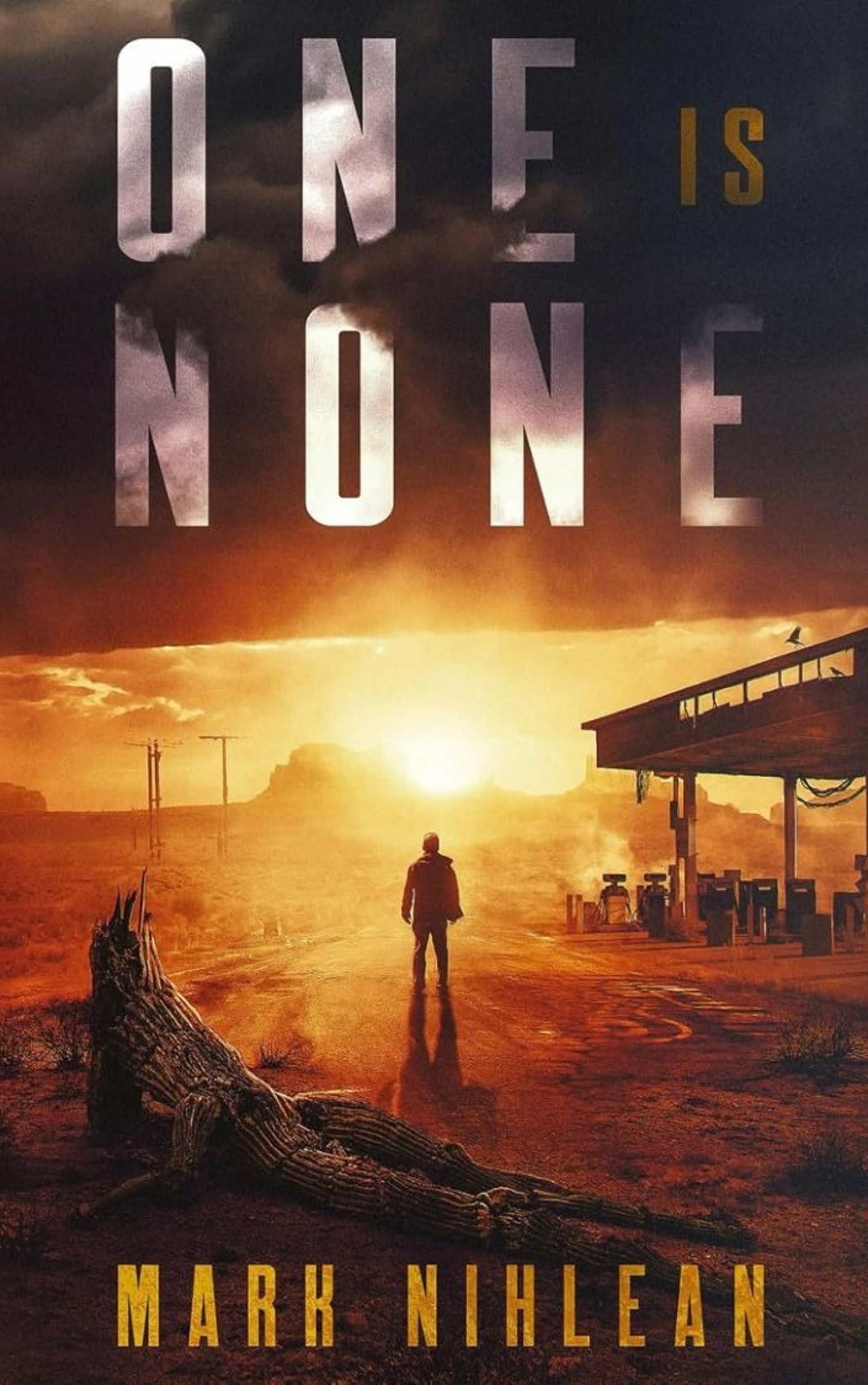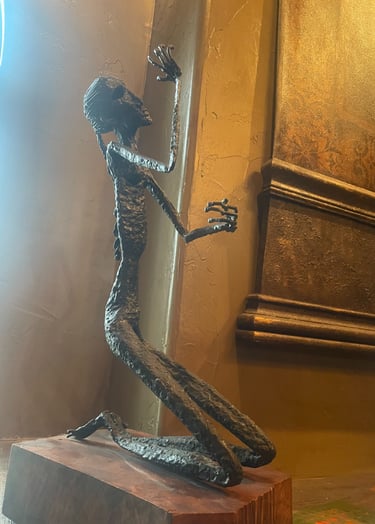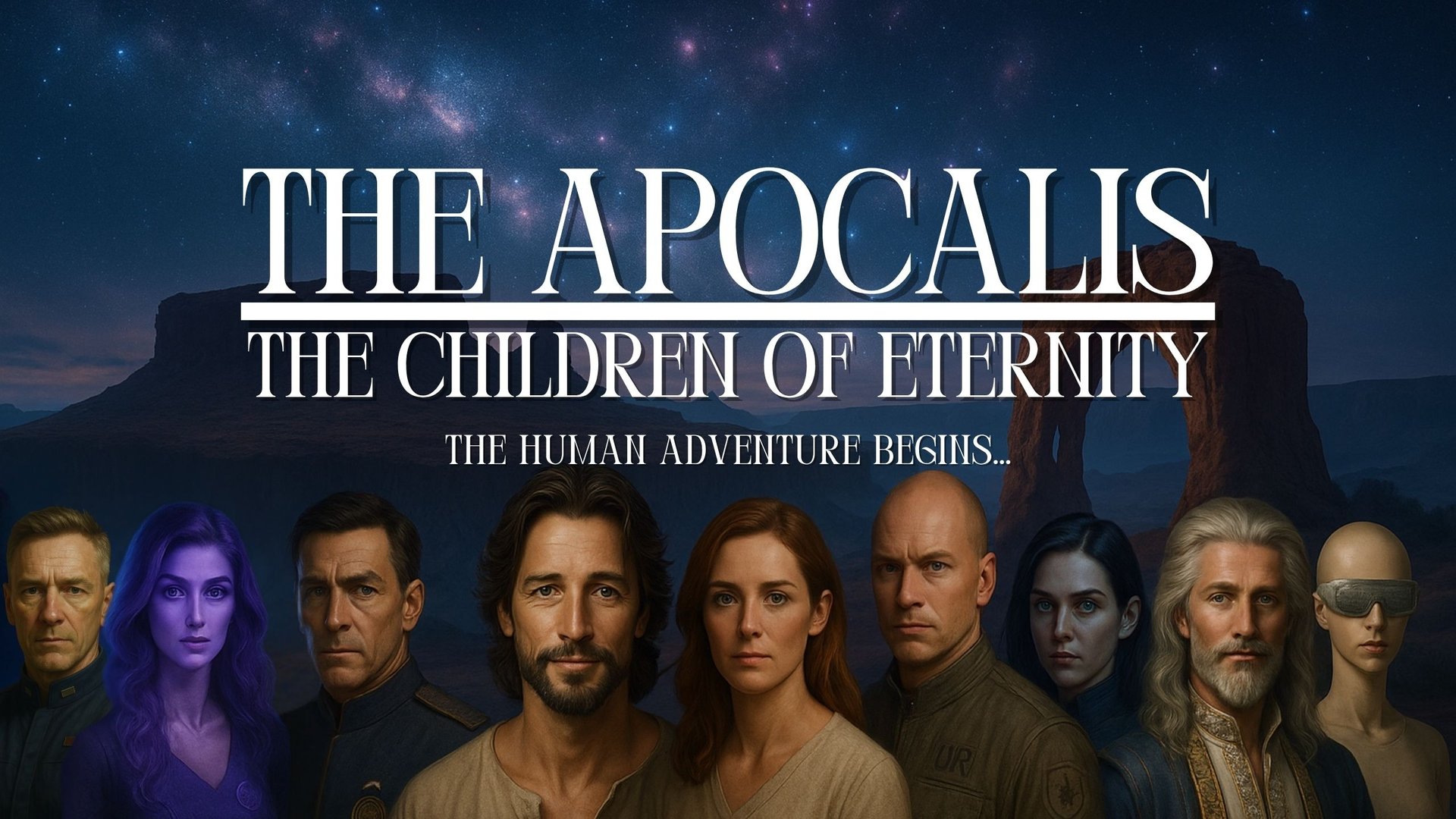
One is None
Dystopian novels are not generally my preferred genre; however, the premise of "One is None" promised to challenge some of the typical themes and tropes of other post-apocalyptic adventures.
The novel begins and you learn that everyone on the planet (save for a few who managed to steal themselves away underground) has disappeared without a trace--no clear sign of war or plague or alien invasion--just gone. The characters Dough, Dolores, Ben, Amy, and Junior emerge from their desert bunker into a Phoenix that has been abandoned, left to a handful of meandering survivalists, aspiring cultists, and Christian nationalists. Shortly after returning to the surface, the characters are gradually exposed in different ways and to varied extents as they journey farther from their bunker and into this new, thoroughly unpleasant world.
The world of "One is None" is not one anyone would (or should) reasonably dream of inheriting. On their best days, Ben, Amy, and Junior suffer the emotional (sometimes physical) abuse of Doug or the unavailability of Dolores. From there, their odyssey of turmoil devolves into an examination of the personalities that have survived and leaves the reader to wonder even more about whatever force was responsible for the apocalypse--a question never contemplated by many of the survivors.
By the end (and it is a testament to Mark's writing), I was relieved to put the novel down for the last time. I found so much of the imagery of "One is None" to be deeply unsettling that I often found myself uncomfortable but trudged on. While "One is None" has not radically altered my perception of the genre, I must say that it succeeds in poking holes in the absurdity of so-called survivalists who long for the day when nations disappear and leave behind nothing but unbridled anarchy.






